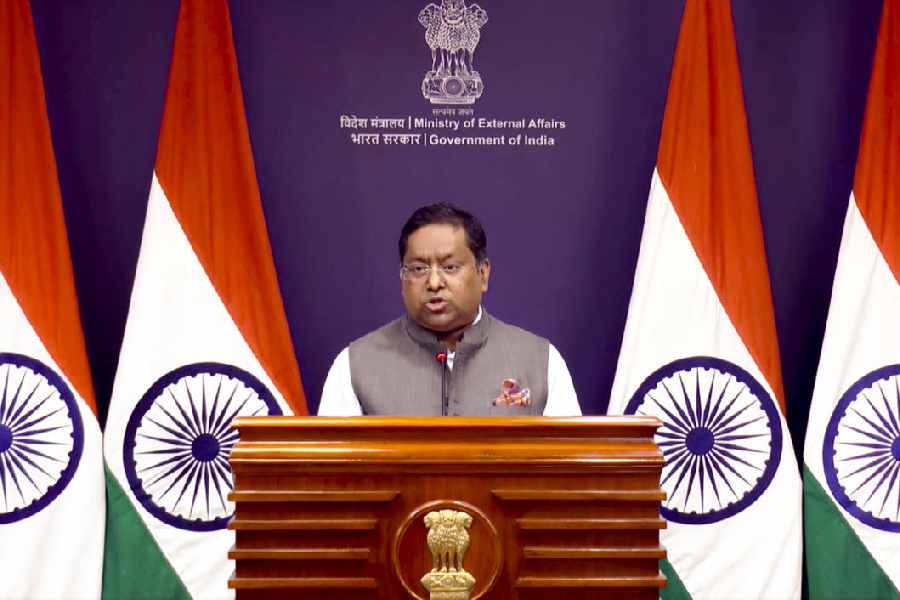India on Saturday said the Trump administration's decision to raise the annual fee for H-1B visas to a whopping USD 1,00,000 is likely to have "humanitarian consequences" and hoped that the "disruptions" will be addressed "suitably" by Washington.
As a proclamation signed by US President Donald Trump on the new visa rules comes into effect on Sunday, New Delhi asked all its missions and posts to extend all possible help to Indian nationals who are travelling back to the US in the next 24 hours.
"This measure is likely to have humanitarian consequences by way of the disruption caused for families," External Affairs Ministry spokesperson Randhir Jaiswal said.
“The full implications of the measure are being studied by all concerned, including by Indian industry, which has already put out an initial analysis clarifying some perceptions related to the H1-B programme,” the spokesperson said.
The MEA highlighted that skilled talent mobility and exchanges have contributed significantly to technology development, innovation, economic growth, competitiveness, and wealth creation in both India and the US.
Policy makers will assess the recent steps taking into account these mutual benefits, including the strong people-to-people ties between the two countries.
“Industry in India and the US has a stake in innovation and creativity and can be expected to consult on the best path forward,” the statement said, adding that the measure is likely to have humanitarian consequences due to the disruption caused for families.
The US move, announced on Friday, aims to crack down on what it described as abuses of the H1-B visa system.
President Donald Trump and White House officials said the fee hike would ensure that only highly skilled workers are admitted and that American jobs are protected.
H1-B visas, typically valid for three years and renewable for another three, are widely used by Indian technology professionals.
Companies sponsoring these visas will now have to pay USD 100,000 annually, a step that could affect whether Indian employees can continue working in the US if companies decide not to bear the cost.
The US administration also unveiled a new “Gold Card” programme offering expedited visa access and a pathway to permanent residency for individuals or companies able to pay USD 1–2 million to the US Treasury.










